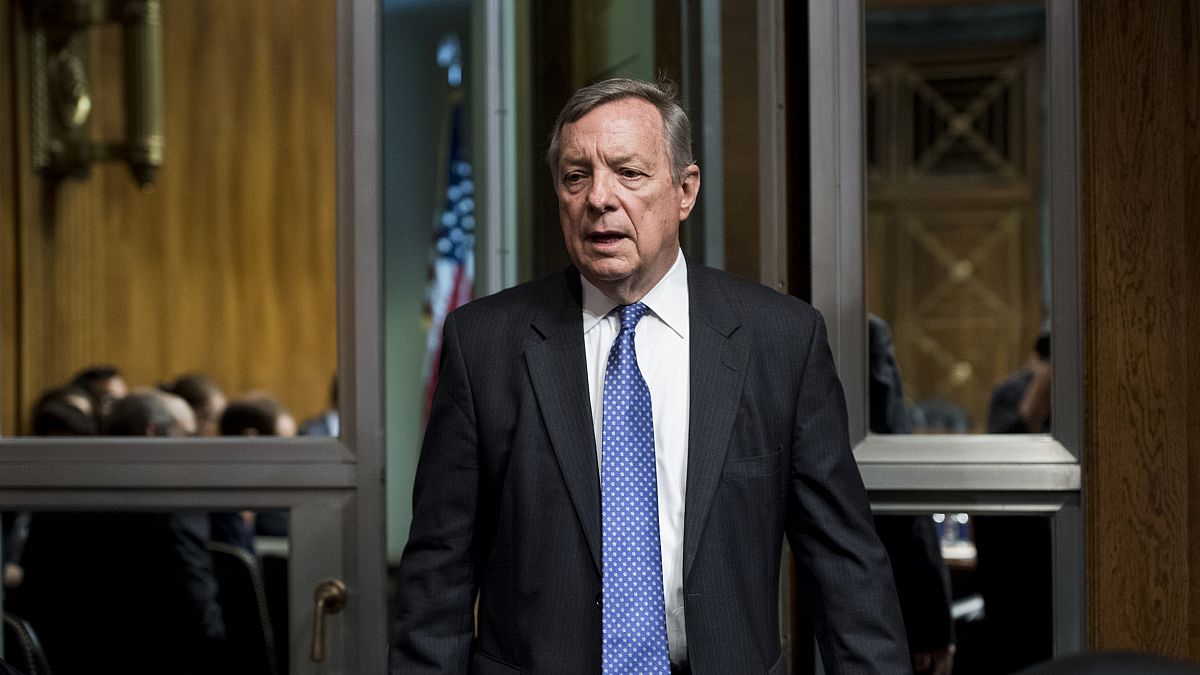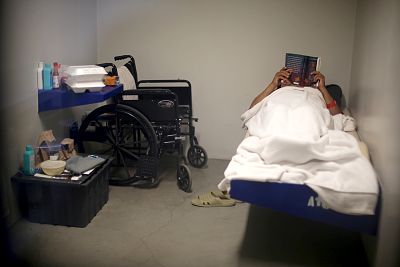"There's virtually no accountability when it comes to these detainees," said Sen. Durbin. "We're setting strict standards here, and it's about time."
Sen. Dick Durbin introduced legislation Thursday that would limit the number of undocumented migrants that Immigration and Customs Enforcement can hold in solitary confinement at jails around the country.
"There's virtually no accountability when it comes to these detainees," said the Illinois Democrat, who is the minority whip. "We're setting strict standards here, and it's about time."
The move followsbipartisan criticism of ICE's use of solitary for immigrant detainees held in jails around the country in response to an NBC News investigation of the practicein partnership with the International Consortium of Investigative Journalists and the Intercept.
"People have to understand that solitary confinement isn't just a bad day," Durbin said. "It can be a bad life experience than can have impacts on a person's mental health for a long time."
The investigation found detainees have been put in solitary confinement simply because they suffered from physical disabilities and needed a prosthetic leg, a cane or a wheelchair, according to ICE records obtained under the Freedom of Information Act. Detainees with mental illnesses were put in solitary, often for weeks or months. LGBT detainees were also routinely put in isolation solely because of their sexual orientation.
Disciplinary violations were the reason for solitary confinement only half the time, according to the data. ICE has put detainees in isolation thousands of times since record-keeping began in 2013 and agency records showed a 15.2 percent increase in placements in solitary confinement during the first 15 months of the Trump administration.
"When we're talking about detainees through ICE, they are largely invisible and never heard from," said Durbin. "It doesn't surprise me as we look at the record here that some of them have been terribly mistreated."
Durbin's bill would limit the number of days detainees could be kept in solitary confinement. It would also grant them longer breaks each day, with at least four hours outside of their cells, in contrast to the current one-hour allowance. It calls for greater access to mental health services, lawyers, other detainees and clergy.
The legal standard for who can be put in isolation for disciplinary reasons would be tightened to those who pose "a substantial and immediate threat" and cannot be relocated to other housing.
In addition, Durbin's bill sets up new oversight of the practice. ICE facilities would be subject to greater review of when they use solitary confinement. They would need to submit weekly reports tracking every instance of isolation. Detention center staff would also undergo training for handling detainees with mental health issues.
Durbin joins four other senators who have reacted publicly to the NBC News investigative series, which launched in May.
In July, Sen. Chuck Grassley, R-Iowa, wrote a joint letter with Sen. Richard Blumenthal, D-Conn., to ICE calling for greater oversight of solitary confinement. Blumenthal separately called for Senate hearings.
Two other Democratic senators, Elizabeth Warren and Cory Booker — both presidential contenders — have also raised concerns. Warren has asked ICE a series of questions, while Booker, a member of the Senate committee that oversees ICE, has called for hearings.

